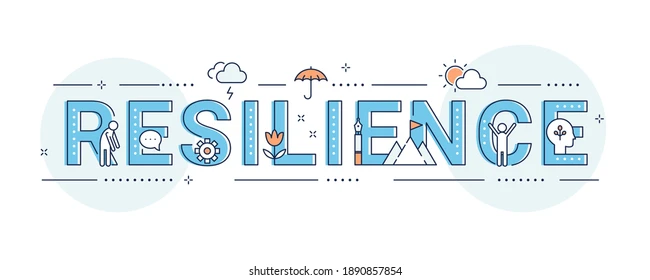
In today’s fast-paced world, the demand for mental resilience has never been greater. Developing the ability to withstand stress, recover from adversity, and move forward with confidence can make a substantial difference in both personal and professional life. Dr Neal Ritter, a distinguished mental health professional, sheds light on the importance of building mental resilience and shares strategies to foster it in our daily lives. His insights are transformative, offering individuals the tools to confront life’s challenges with strength and optimism.
1. Understanding Mental Resilience
Mental resilience is the ability to adapt positively in the face of adversity, trauma, or significant stress. It’s not about eliminating stress altogether; rather, it’s about managing responses to difficulties. Dr. Ritter explains that mental resilience allows us to confront challenges without losing stability, helping us maintain focus on our goals and well-being.
2. The Power of a Growth Mindset
A growth mindset—believing that abilities can be developed with effort—forms the foundation of mental resilience. Dr. Ritter emphasizes that seeing setbacks as opportunities for growth rather than as failures can reshape our responses to challenges. Embracing this mindset empowers us to learn from every experience, reinforcing resilience and encouraging self-improvement.
3. Embracing Self-Care Practices
Self-care is an essential component of building mental resilience. Dr. Ritter encourages regular practices that replenish emotional reserves, such as adequate sleep, a balanced diet, and exercise. These seemingly small habits are fundamental to sustaining energy and emotional balance, making it easier to face life’s ups and downs with a calm and clear mind.
4. Cultivating Emotional Awareness
Being aware of one’s emotions is key to handling stress and adversity effectively. Dr. Ritter suggests that individuals take time to assess and understand their emotional reactions. Journaling or simply reflecting on feelings can help identify triggers and manage responses to stress in a healthy way. By cultivating emotional awareness, individuals gain better control over their actions and build emotional resilience.
5. Establishing a Support System
Resilience does not mean going through hardships alone. Dr. Ritter advocates for establishing a network of supportive friends, family, and colleagues who provide emotional support. A strong support system offers comfort and perspective, which are invaluable in difficult times. Connecting with others who care can alleviate the burden and offer insights that foster resilience.
6. Setting Realistic Goals
Setting achievable goals contributes to resilience by offering a sense of purpose and direction. Dr. Ritter advises breaking larger goals into manageable steps and celebrating small victories along the way. This approach not only boosts motivation but also builds confidence, reinforcing the ability to face bigger challenges with a resilient mindset.
7. Practicing Gratitude Daily
Gratitude is a simple but powerful practice that can shift perspective and promote resilience. Dr. Ritter recommends taking a few moments each day to acknowledge things to be thankful for. This practice fosters a positive outlook, helping individuals view situations with an optimistic mindset, which, in turn, strengthens mental resilience.
8. Building Flexibility in Routine
While structure provides stability, flexibility enables resilience. Dr. Ritter suggests embracing adaptability, learning to adjust routines and expectations when necessary. Developing the ability to pivot in response to changes can reduce stress and prevent feeling overwhelmed, ultimately making one more resilient.
9. Focusing on Problem-Solving Skills
Dr. Ritter highlights the value of strong problem-solving skills for resilient thinking. When faced with a challenge, rather than dwelling on the problem, individuals can focus on potential solutions. This approach reinforces a proactive attitude, empowering individuals to tackle adversity with confidence and composure.
10. Seeking Professional Guidance When Needed
Sometimes, professional support is essential in building resilience. Dr. Ritter emphasizes that therapy or counseling can offer valuable tools and insights for managing stress, overcoming emotional roadblocks, and developing resilience. Speaking to a mental health professional provides a safe space to address underlying issues and gain new perspectives on handling life’s difficulties.
Conclusion
Mental resilience is a skill that can be developed through conscious effort and commitment. Dr. Neal Ritter’s approach to building resilience underscores the importance of self-awareness, support systems, and a positive mindset. By incorporating these strategies into daily life, individuals can enhance their resilience, preparing themselves to navigate challenges with greater confidence and emotional stability.